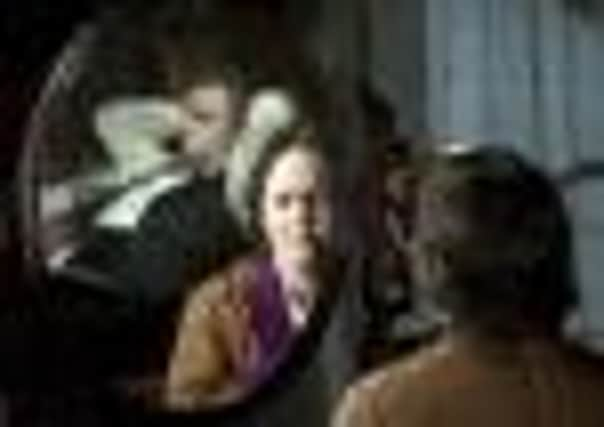Film review: Lincoln (12A)


Most recently Benjamin Walker took on the undead in 2012’s less reverent Abraham Lincoln: Vampire Hunter. Steven Spielberg has taken a different approach: a movie about Lincoln’s fight against slavery, which makes its audience feel tethered to a two-hour lecture on political procedure.
Dozens of earlier biopics have shown what the director was trying to avoid, namely a canter through the 16th president’s greatest political hits before Mrs Lincoln suggests a date night at the theatre. But this chamber piece about his struggle to push through the 13th Amendment often feels like Take Your Voter To Work Day. Lincoln begins with the civil war, mud and muskets, but most of the fighting that goes on is verbal fencing, abuse and argument, like a whiskery edition of The West Wing.
Advertisement
Hide AdThere’s a sense that Spielberg has stifled some of his natural storytelling instincts with Tony Kusher’s chatty screenplay. The movie even cops to its own talkiness when Lincoln launches into one of his laboured and lengthy cracker barrel anecdotes, and the camera catches those present rolling their eyes in impatient exasperation.
Thank goodness for Tommy Lee Jones as Thaddeus Stevens, a belligerent, bewigged abolitionist who sees Lincoln as a sellout, and whose florid invective provides several of the picture’s best exchanges. The worst is probably the battle scene where a black soldier quotes The Gettysburg Address back to Lincoln, as if expecting the president to join in on his favourite bits. The point is that Lincoln was a very accessible president, always wandering off to chat to soldiers, telegraph operators, or members of his cabinet, although this reckless ease might just prompt the less reverent viewer to wonder why he wasn’t assassinated a lot sooner.
Spielberg is more eloquent when the politicking shuts up and he lets his camera find an image, whether it’s a wheelbarrow’s progress from a civil war tent to a pit filled with amputated limbs, or Lincoln’s son handling a photograph of two children the same age, but a different colour, marked “Two young boys, $700”.
At least Spielberg has a very good president: not only does Daniel Day-Lewis bear an uncanny resemblance to Lincoln’s gaunt, haunted American eagle, but he captures his complexity: authoritative, yet self-deprecating, a warm communicator who cannot conceal disapproval to his wife and older son. Also good is Sally Field as tough but unstable Mary Todd Lincoln, a partner to an unhappy marriage, who has already guessed that history won’t really like her.
Reliable character stars fill out the supporting roles, with David Strathairn as Lincoln’s muscle and secretary of state, William Seward, and an enjoyable trio of roguish lobbyists (James Spader, John Hawkes and Tim Blake Nelson) who horse-trade for anti-slavery votes on Lincoln’s behalf.
I can imagine political parties booking office trips to see Lincoln, the same way hen nights gathered for Mamma Mia, but even they might weary of the gauzy decorousness that suffuses Lincoln. This is handsome-looking history, but Spielberg’s worshipful treatment slows down its pulse. «
Twitter: @SiobhanSynnot
• On general release from Friday